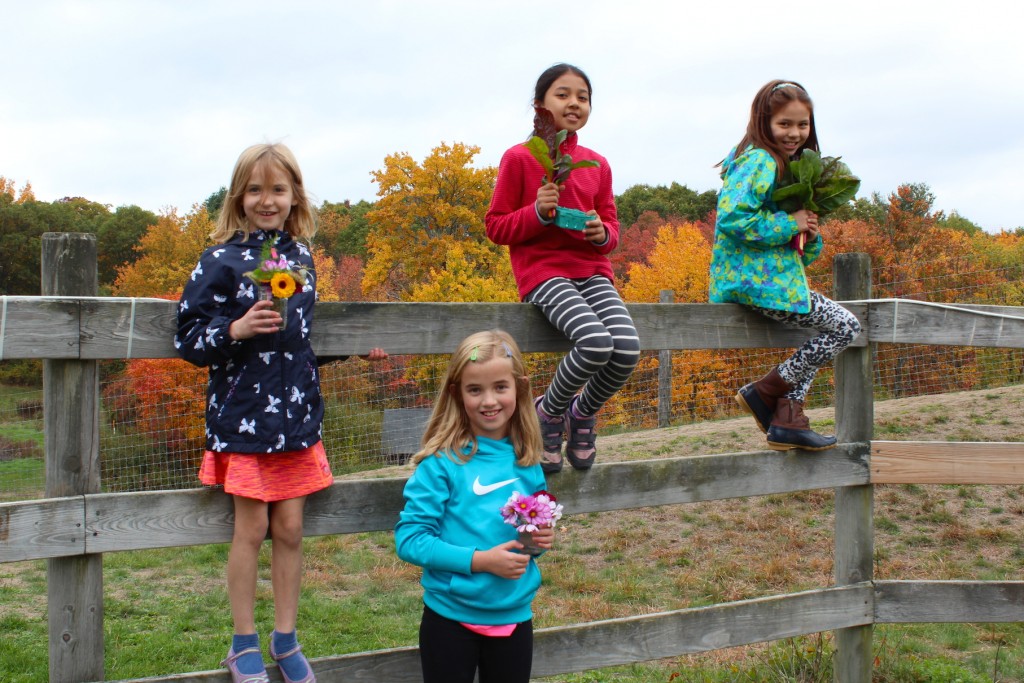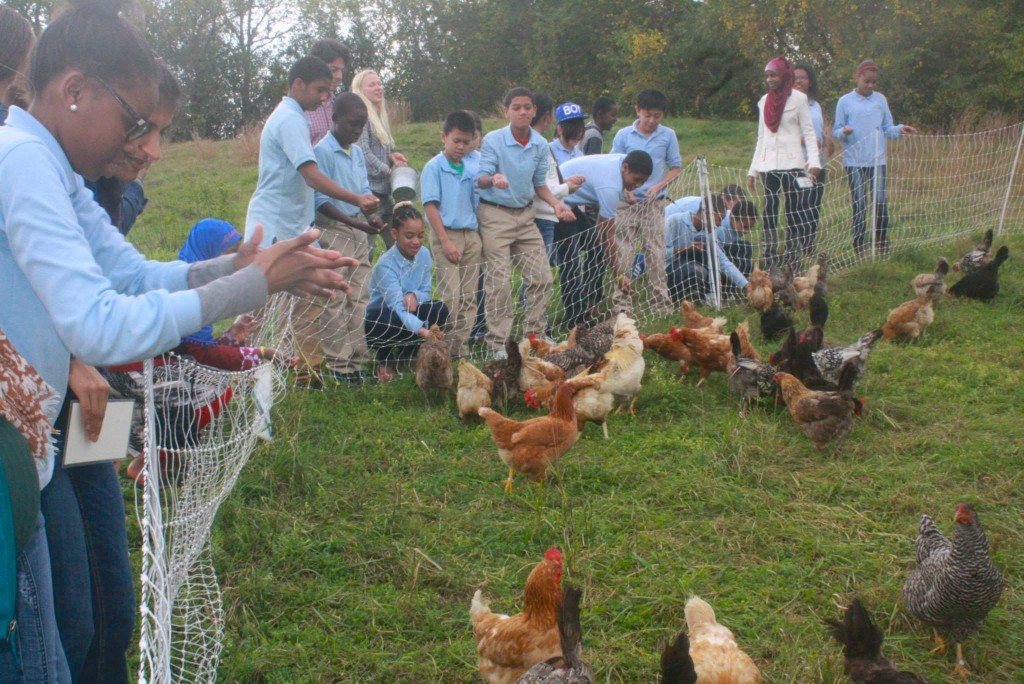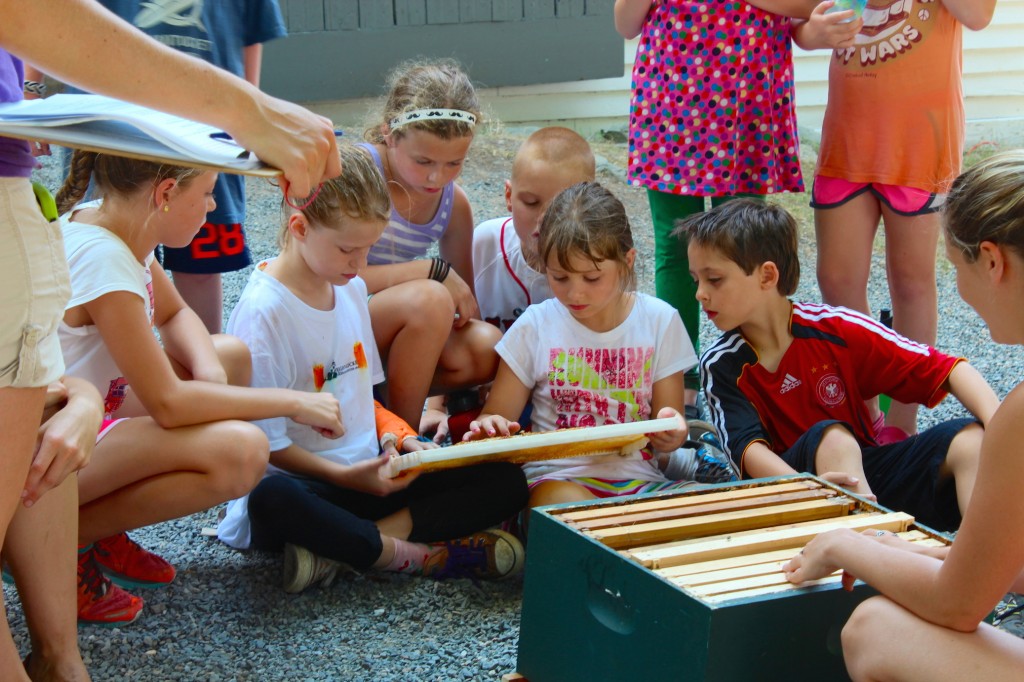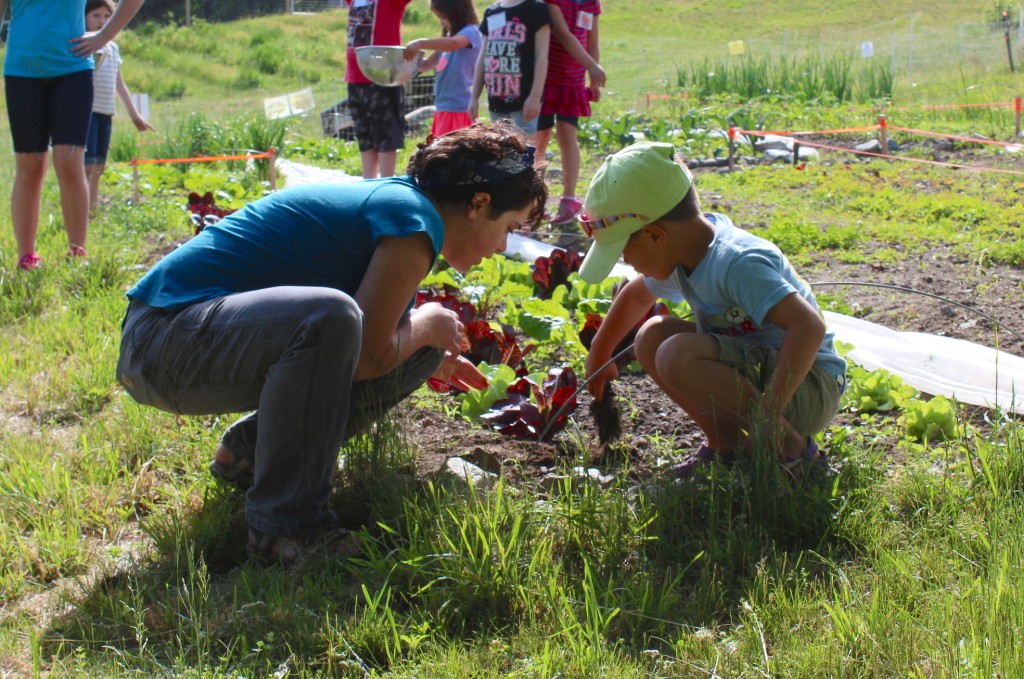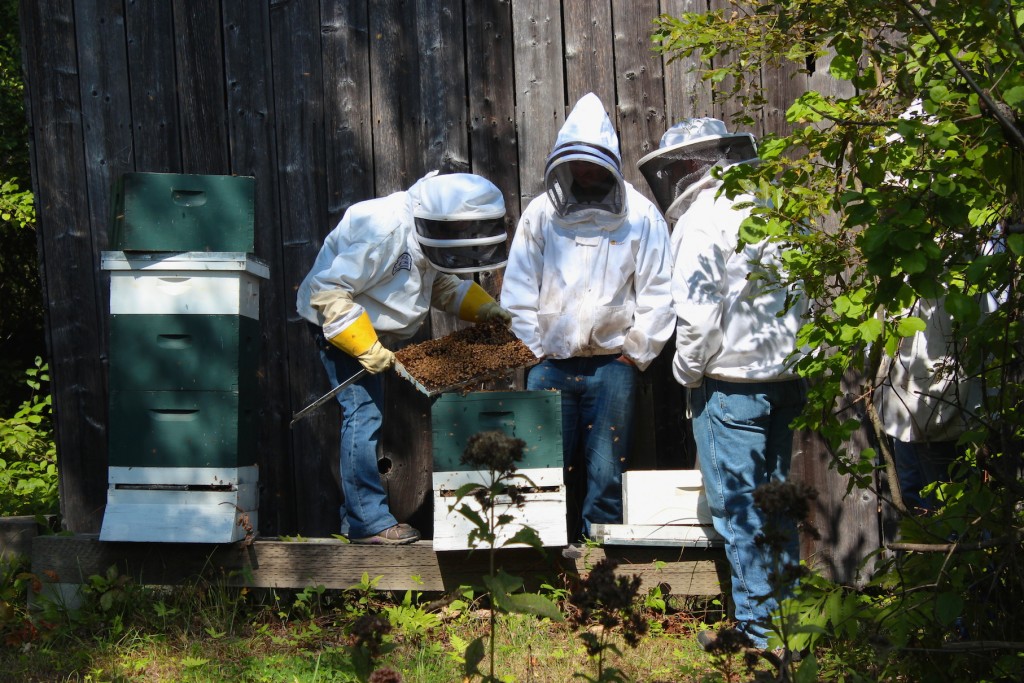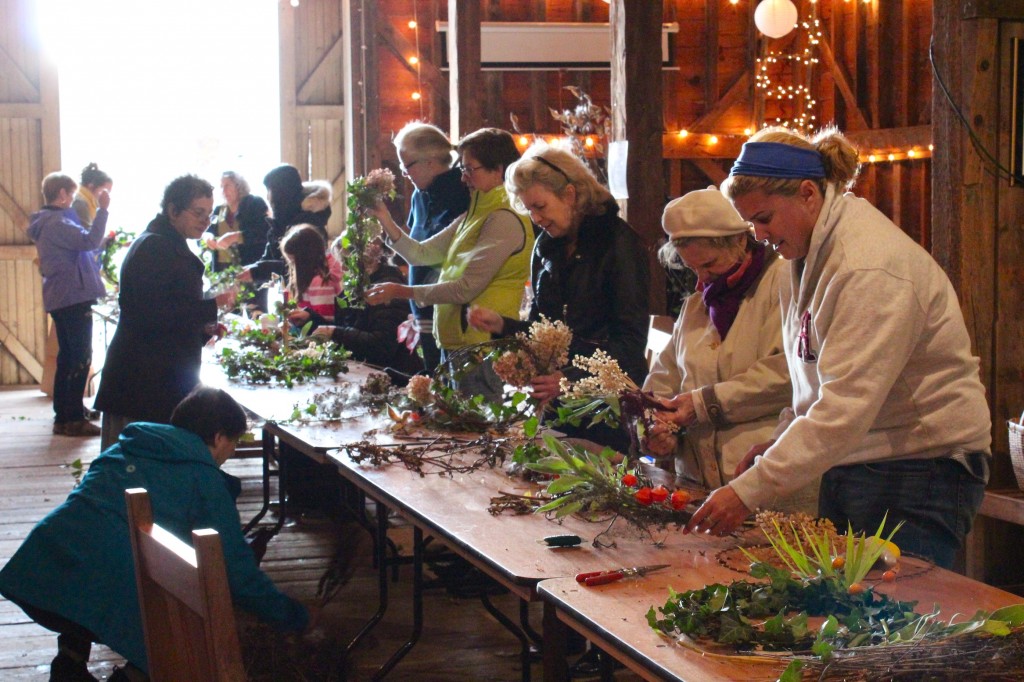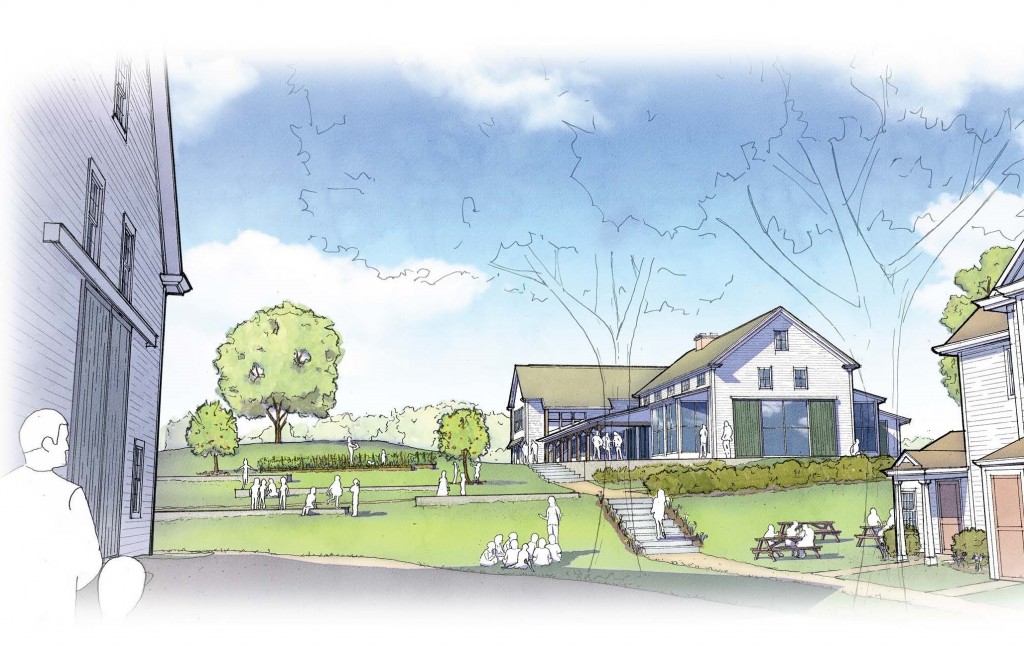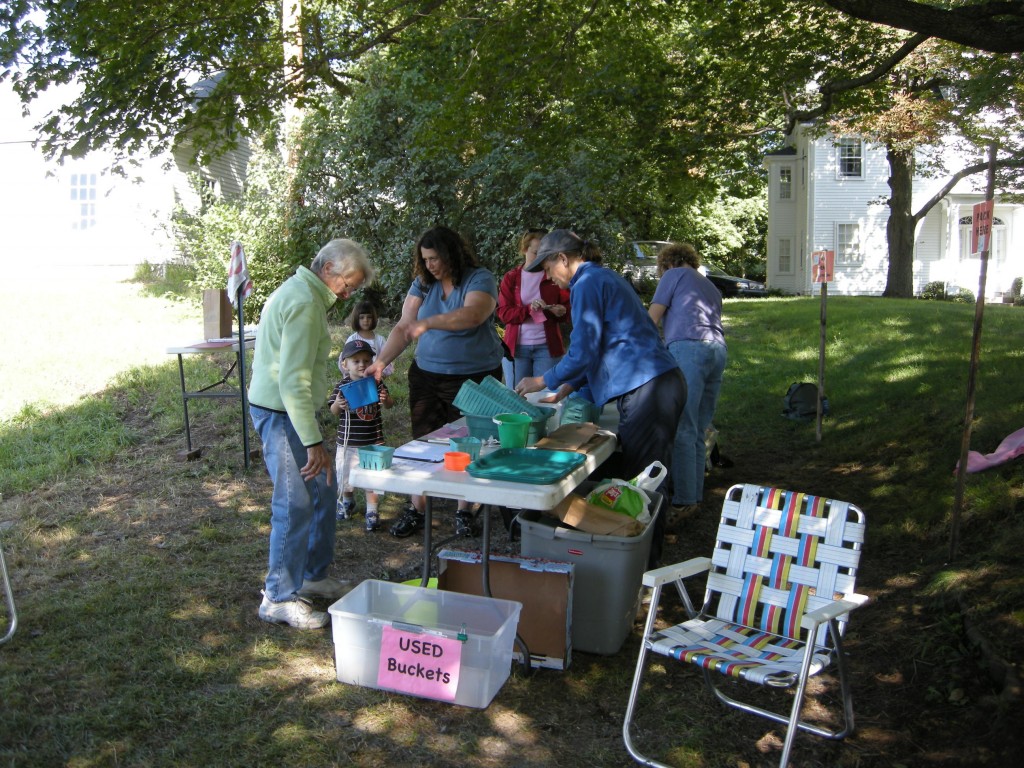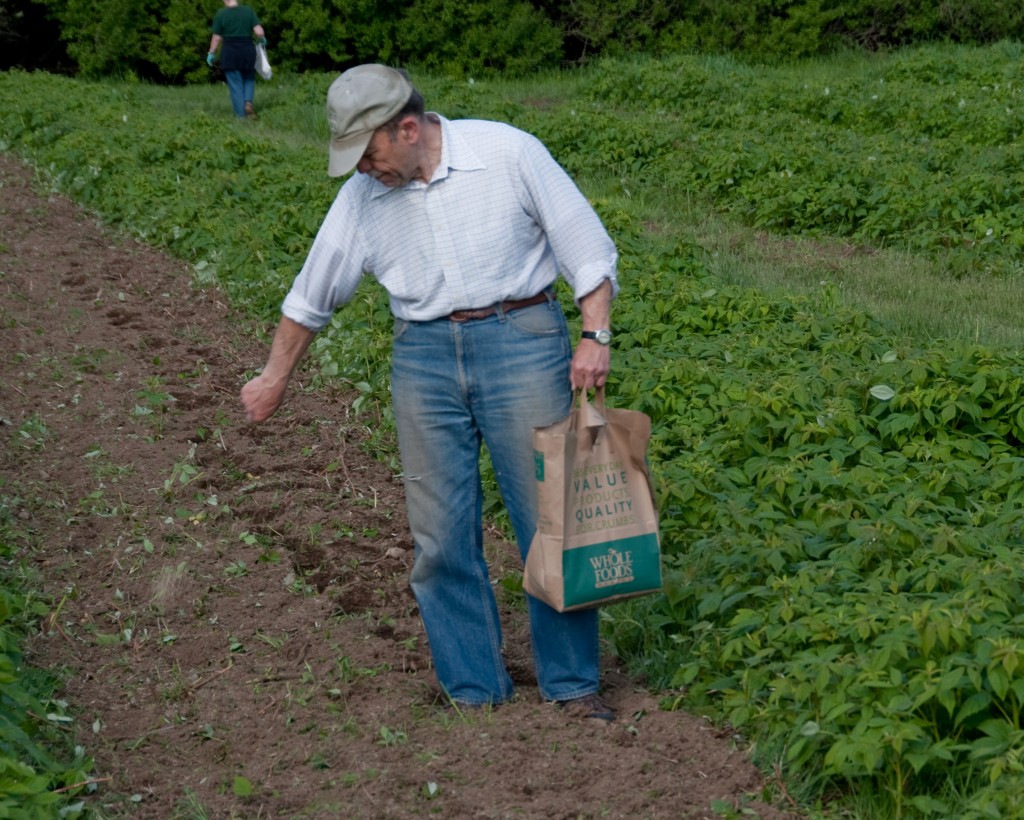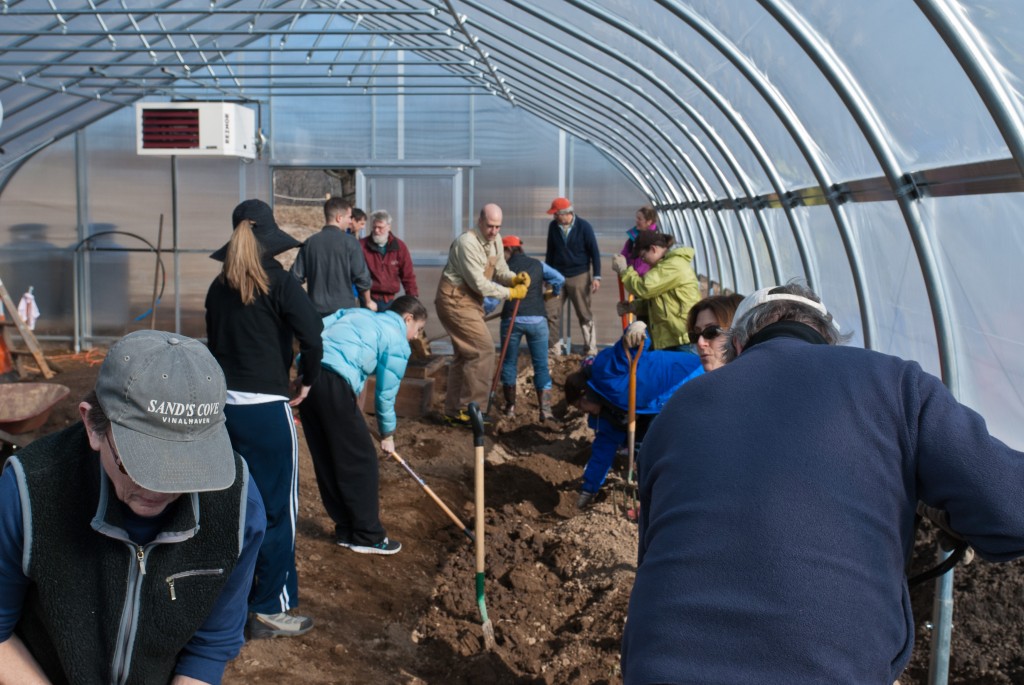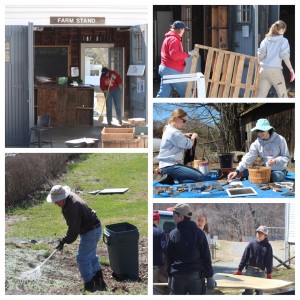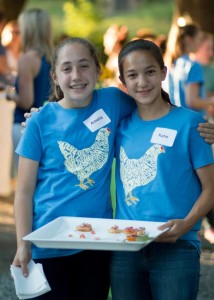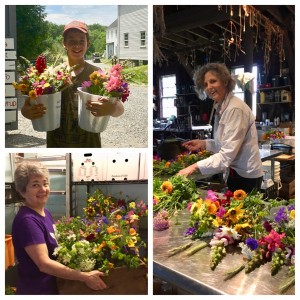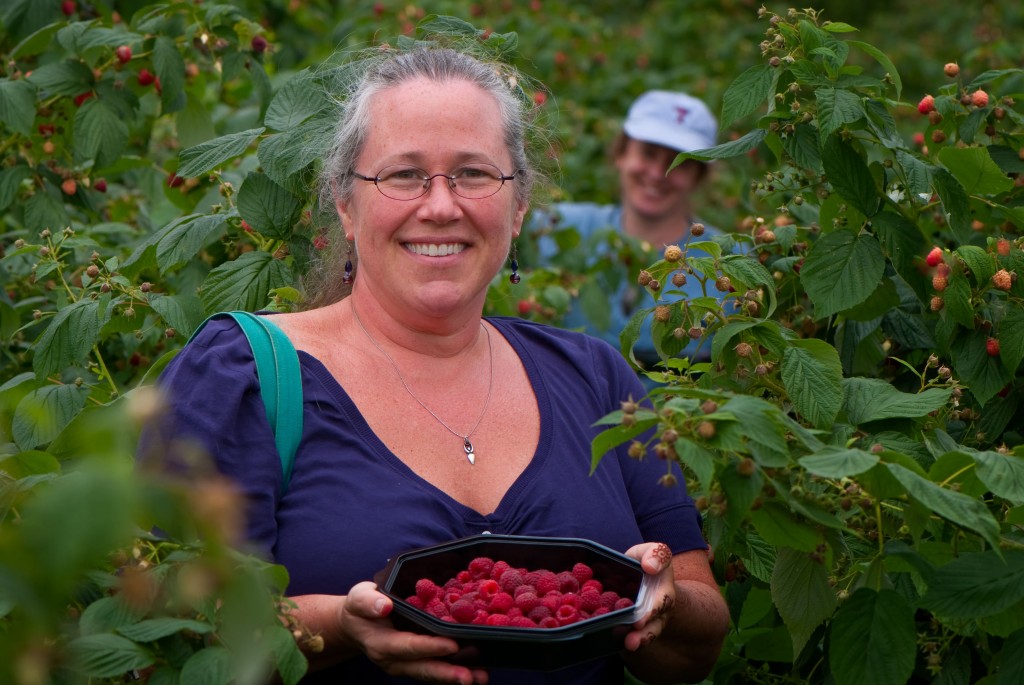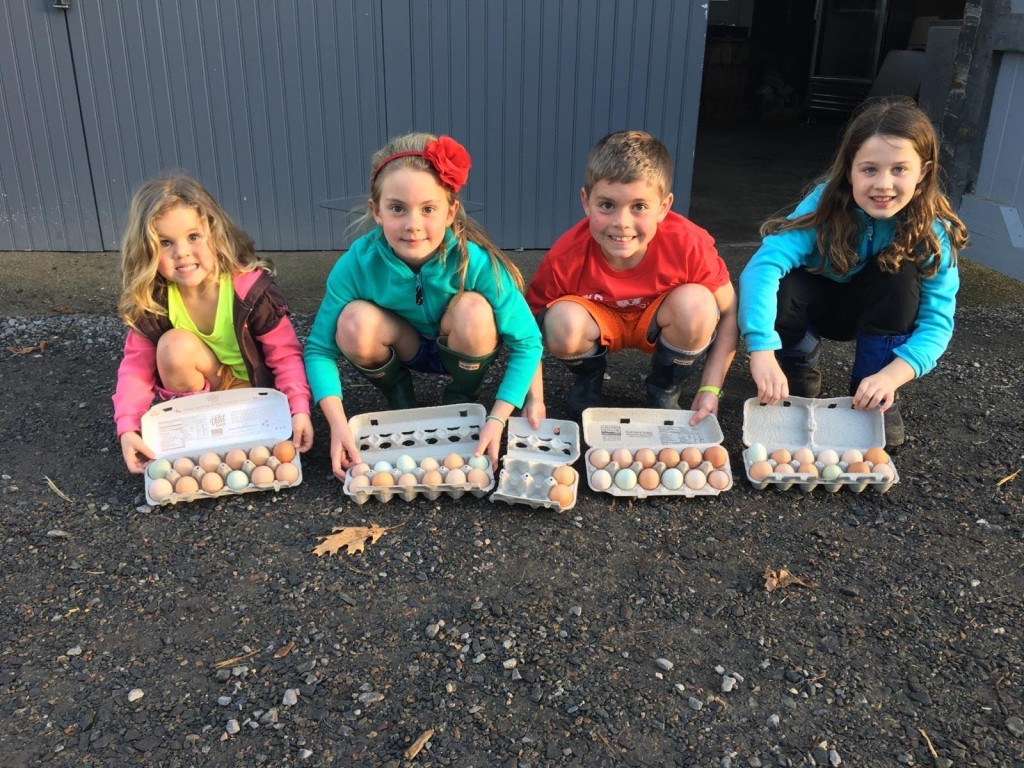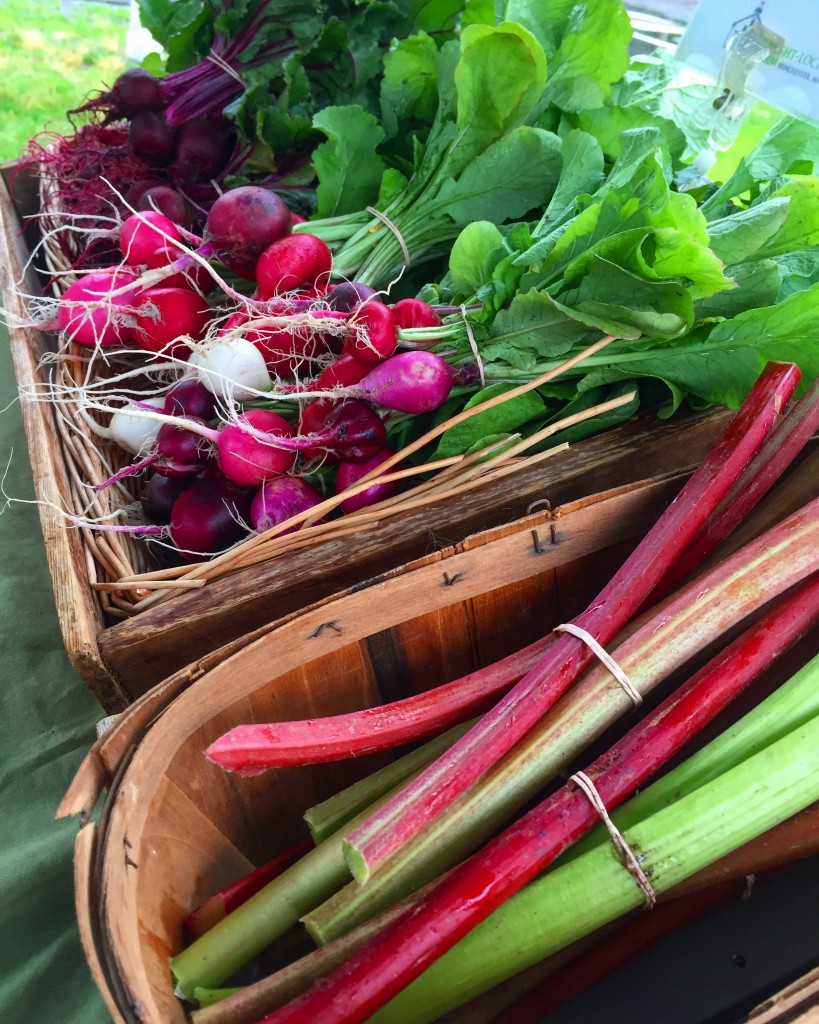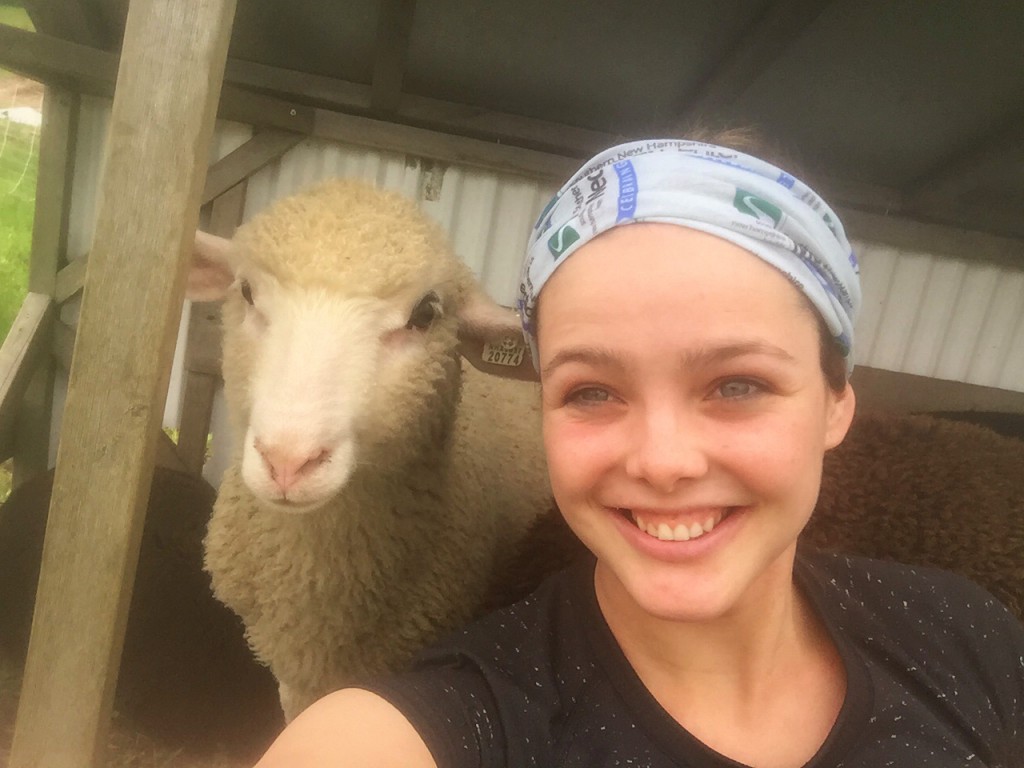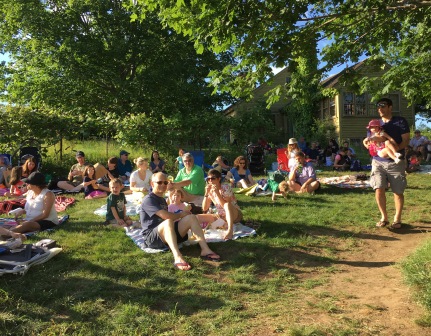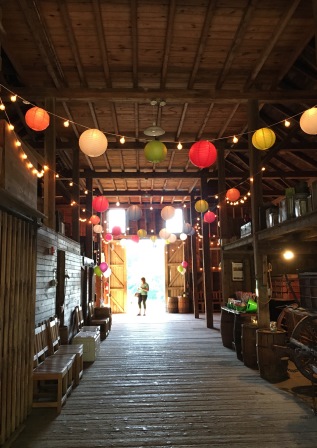January 2018
Written by Community Engagement Manager,              Kim Kneeland
In mid-January, a small contingent from Wright-Locke Farm headed to the Northeast Organic Farming Association’s┬á(NOFA) Annual Winter Conference in Worcester, MA. Many of us have been going to these conferences for years – days packed full of workshops, intensives, lectures, round-table discussions, and (since itΓÇÖs a farming conference) really good lunch! It is always amazing to be in the same place with hundreds and hundreds of people who are passionate about the same things you are. Of course weΓÇÖre all going about our passions in different ways and so it is always fun to soak up the creative problem solving and tips and tricks of the trade. I can never help but feel like a kid on Christmas Eve, giggling in anticipation for the next dayΓÇÖs adventures while I flip through the conference program circling all of the sessions IΓÇÖd like to attend. And there are always so many! This year, I was forced to choose between:
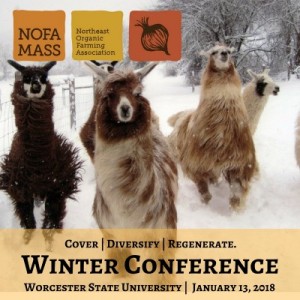
- Developing Local Food Production/Education Programs at Jails
- Balancing Fair Wages, Farm Viability and Affordable Prices
- Climate Adaptation: Preparing Farms, Communities, and Regions for Climate Disruption
- Edge Silvopasturing
- Designing a Suburban Permaculture Homestead
And that was just ONE time slot! One thing that has been really interesting to see over the past seven years (for me at least), is to notice the major themes that take the stage during these conferences. You see these themes thread through the keynote speaker topics, the types of workshops offered, and what all your cohorts are talking about during lunch and breaks. Most recently, the focus seems to be solidly on soils.
Yes, DIRT! Everyone is getting really worked up about that lumpy brown stuff we walk on. And for good reason; the more and more I learn, the more it seems that soil offers some major solutions to the overwhelming problems we as humans are facing, from nutrition, productivity, disease and pest control, to resilience from climate change and carbon sequestration.
This yearΓÇÖs keynote speaker, Gabe Brown, talked about ΓÇ£regenerative farming,ΓÇ¥ and how focusing on soil health creates abundance, profit, healthy ecosystems, and resilience. Last yearsΓÇÖ keynote speakers were the owners of Singing Frogs Farm who practice ΓÇ£No-TillΓÇ¥ farming where they reap huge ecological and financial benefits by working with and protecting the soil life rather than destroying it through tillage. There is a HUGE web of diverse biota in our soils and with traditional tillage practices, this complex ecosystem beneath our feet is highly compromised and can be almost completely destroyed with continuous disturbance (picture the ΓÇ£Dust BowlΓÇ¥ – except this is not just a problem of the past!).
We saw the importance of soils pop up in almost half of the workshops, from talking about mycorrhizal fungi, the role of soils in carbon sequestration, linking soil and water to climate change, in holistic animal and land management, cover cropping, to an all day intensive seminar on managing the fertility of your soils. The common thread? Keeping your soils full of life and as close to intact as possible gives any operation a much stronger basis and helps mediate most large temperature, weather, pest, and disease pressure.
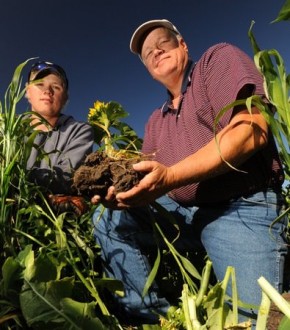
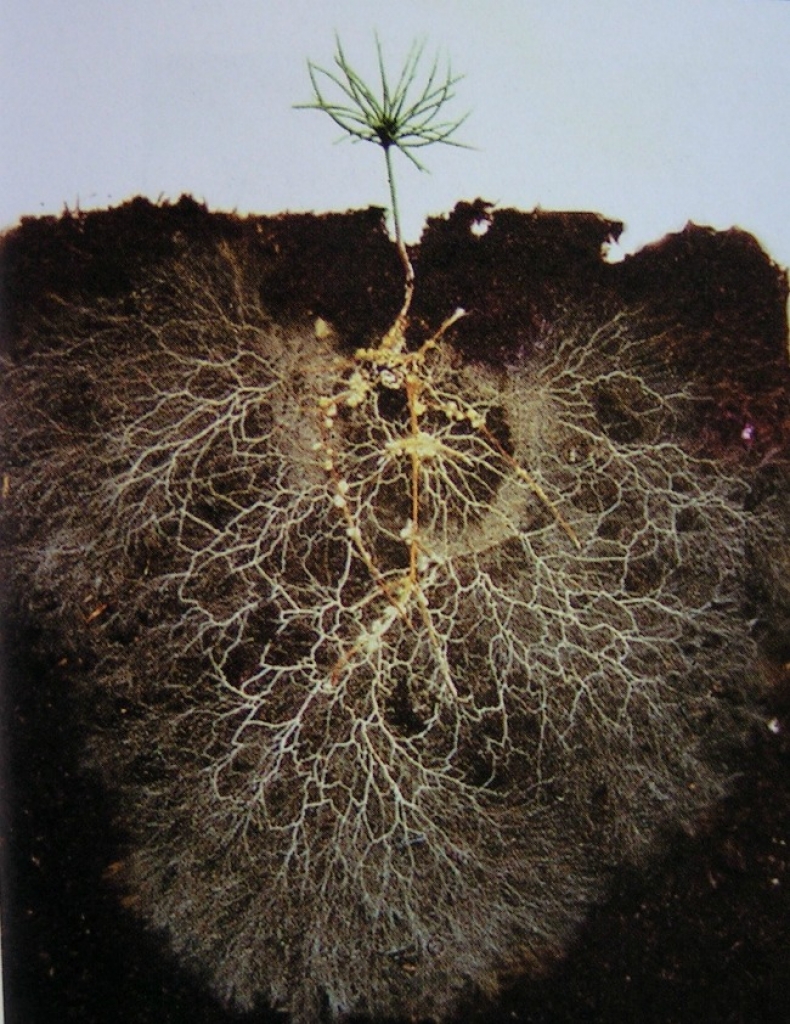
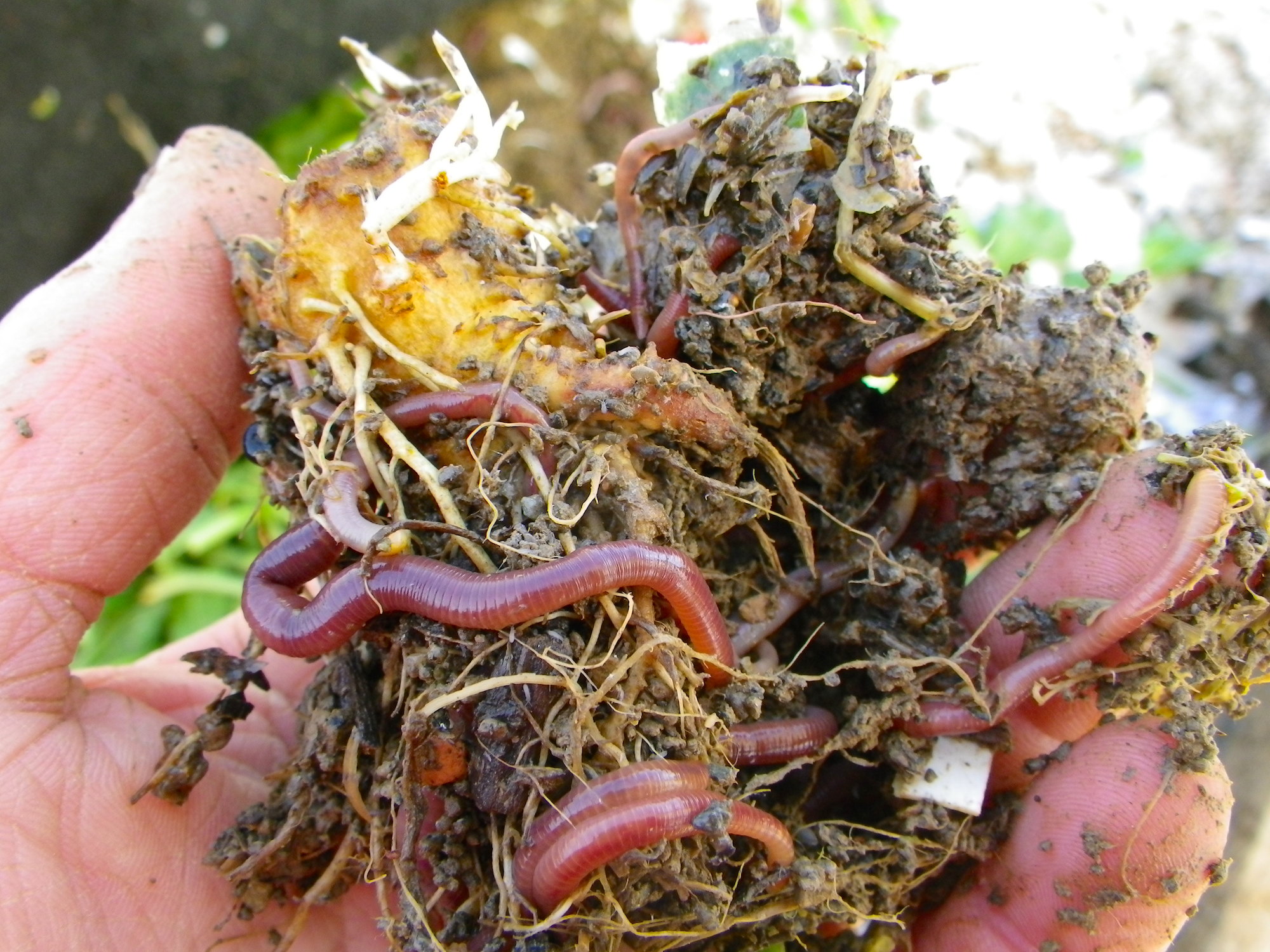
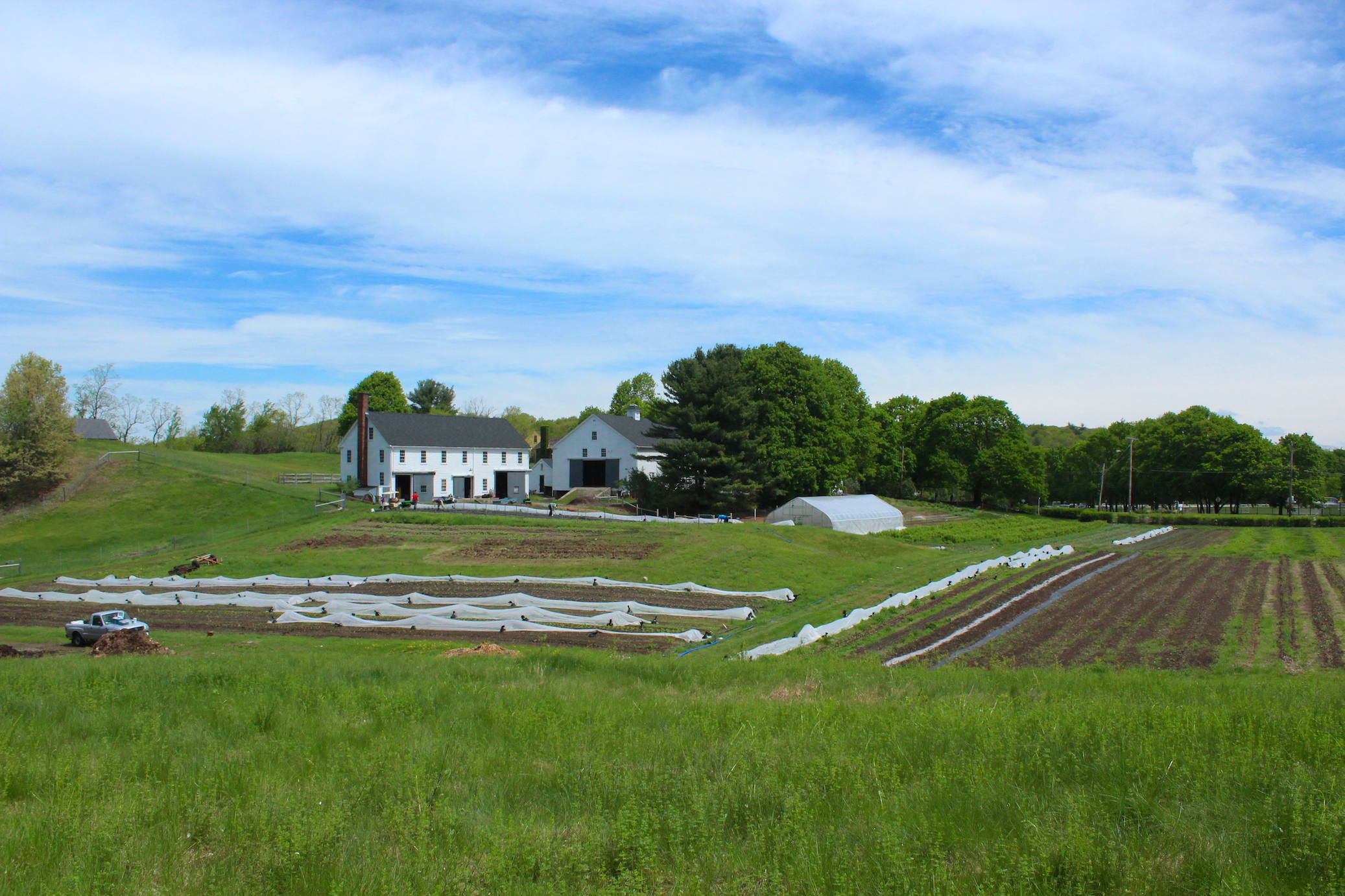
One of the most significant revelations for me this year was learning about the relationship between plants and mycorrhizal fungi. In learning about photosynthesis in school, it had never really sunk in (if it had been mentioned at all) that when plants make their carbon based sugars using sunlight, CO2, and H2O, they actually exude a large portion of those sugars through their roots into the soils around them. But guess whoΓÇÖs hugging tightly to all the plantsΓÇÖ roots? Mycorrhizal fungi! They form their own complex ΓÇ£rootΓÇ¥ web around the plantsΓÇÖ roots and create a partnership. They get some of the sugars from the plants and, in exchange, they use their own root system to extend the reach of the plantsΓÇÖ roots in order to get minerals, micro and macro nutrients, as well as water. When fungi and plants mingle their systems, the root surface area (and therefore nutrient uptake) increases by 10 to 100 fold! This leads to stronger, healthier plants, more nutritious fruits, and more carbon sequestered in the earth (as the fungi convert the simple sugars into more complex carbon chains). When we break up the soil through physical and chemical means, we also break up the fungi (and plenty more than just them!) and destroy those partnerships in the soil. Without those partnerships, we have to artificially add those nutrients, minerals, and water that the plants need to boost their productivity. And despite our advances in understanding agriculture and soil science, we are far from understanding the ultra-complex natural systems that interact around and beneath us. Which means that it is no surprise that we are seeing the problems in our current agricultural system that we are: disease, pest pressure, less nutritious food, water retention and runoff problems, etc. etc. (Reference = Mycorrhizal Planet by Michael Phillips)
This is grossly simplified, but the overall message remains the same. We’ve got to start thinking long-term and rebuild our soils through the living organisms in the earth to create healthy, vibrant and resilient systems. At Wright-Locke Farm, we continue to learn and try to implement these practices as best we can. We take regular soil tests, we try not to till too often, we rotate all of our crops from field to field each year, we try to use cover crops and soil restoring crops when we can, and we use our own compost in the field to add nutrients and biota back into our soils. But it is a complicated system and our farmer has to balance many different needs all with a very limited amount of time, funds, and staff. We’ll keep on balancing, adapting, and improving as farmers do. One initiative that we will be undertaking that puts the health of our land, forests, and water at the forefront is our Agroforestry Master Plan which you can learn more about here. If you’re interested in being involved with our efforts, you can e-mail Archie McIntyre. (Photo credits to NOFA)
